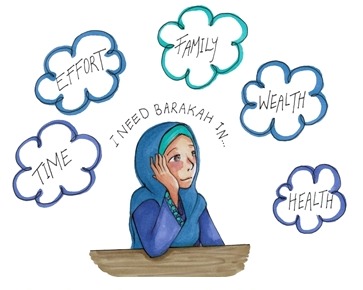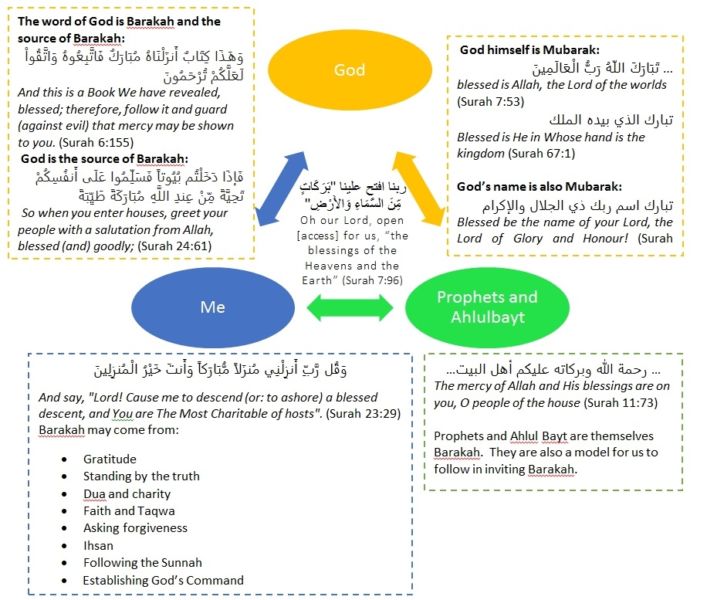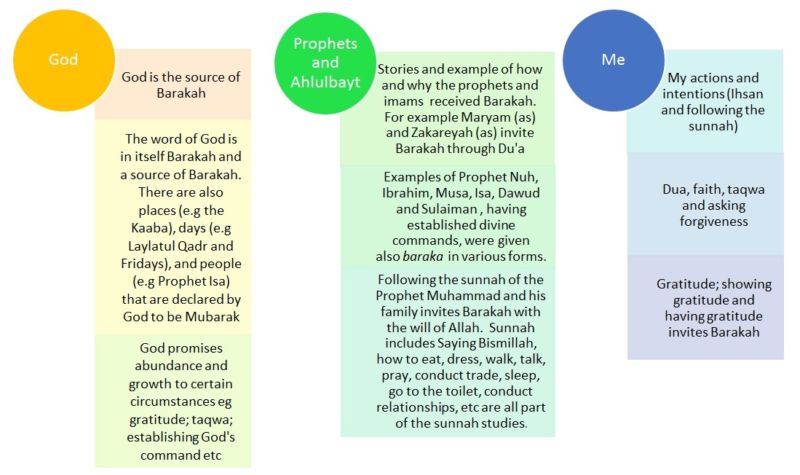2017 Dhikr Program Focus: Barakah
Our theme for this year in the Dhikr Program is: “Inviting Barakah into our lives”.
The word Barkah and its conjugates are mentioned in the Quran over thirty times. Barakah in the Quran has several meanings including growth and increase. It also comes in the context of high status and divine protection. We all seek Barakah in our lives. We aspire to be productive and use our resources wisely. We seek Barakah in our time, effort, food, wealth, health, children, home etc. But how do we do that?
This year, our participants will learn about and explore together the Barakah triangle:
The triangle simplifies the link between the individual (the seeker of Barakah) with Allah (swt), the giver of Barakah. The triangle highlights the importance of the Prophets and Ahlul Bayt (the model of barakah) in providing examples of how to seek Barakah. The Qur’an, the word of God, as well as the Prophet Mohammed (PBUH) and his family are also a source of Barakah through whom, with the permission of Allah (swt), we gain growth in what we seek.

Participants in the Dhikr Program will learn that Barakah is brought forward through God’s approval and blessing upon those who establish or carry out His commands. It stems from our sense of gratitude to God:
The Holy Quran - Surah 14 - verses 7
وإذ تأذن ربكم لئن شكرتم لأزيدنكم…
“And [remember] when your Lord proclaimed, ‘If you are grateful, I will surely increase you [in favour] …‘” (Surah 14:7)
In our program, we aspire to teach about Barakah in an engaging and hands on way. Our participants will be facing challenges throughout the year requiring them explore their intentions; practice daily actions following the Sunnah; and be involved in community projects to support others in need. A couple of example include:
- Having a picnic with your mates where all the food is sunnah food and you are required to eat and drink the way the Prophet (pbuh) did;
- Participating in a walkathon for a charity but ensuring to walk like the Prophet (pbuh) with respect and dignity, behind the father or elder and at a moderate pace.
